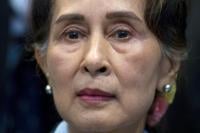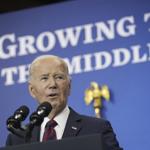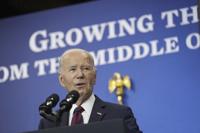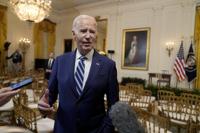MOSCOW (AP) — The lower house of Russia’s parliament on Wednesday gave overwhelming approval to the first reading of a proposed law to prohibit the adoption of Russian children by citizens of countries where gender transitioning is legal.
The measure, which would need to pass two more readings in the Duma before being sent to the upper house and then to President Vladimir Putin, follows a series of other laws and rulings that clamp down on sexual minorities.
Putin and other top officials in recent years have increasingly called for observing so-called “traditional values” as a counter to Western liberalism characterized as degenerate.
Duma speaker Vyacheslav Volodin said the bill is aimed at “protecting childhood and traditional values” and would affect citizens of dozens of countries.
“It is necessary to protect our children from the dangers they may face in adoption or guardianship by citizens of foreign countries where gender reassignment is permitted,” he said.
“The issue is not that Russia’s moral compass and moral foundations aim to protect traditional values, and understanding of marriage as the union of man and woman, but it’s the direct protection of a child’s life,” said parliament deputy speaker Irina Yarovaya.
Russia's Supreme Court last year outlawed the LGBTQ movement as extremist. In 2022, Putin signed a law prohibiting the distribution of LGBTQ information to people of all ages, expanding a ban issued in 2013 on disseminating the material to minors.
The Duma on Wednesday also was to consider draft bills that would outlaw spreading information about voluntarily choosing not to have children.
As Russia's population declines, Putin has made statements advocating large families and last year urged women to have as many as eight children.








































